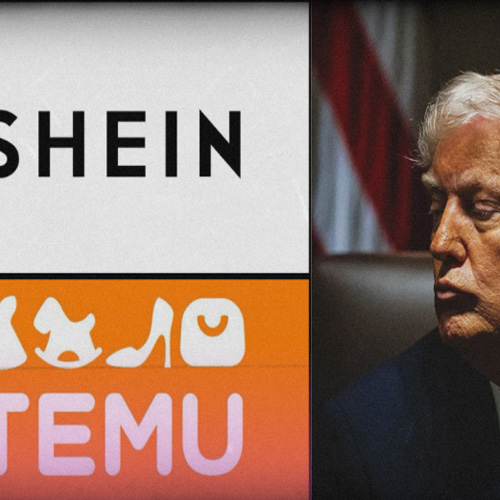E-Commerce Site: U.S. Prices To Increase After April 25th From Trump Tariffs
E-Commerce Site: U.S. Prices To Increase After April 25th From Trump Tariffs

Chinese e-commerce giants Temu and Shein have announced they will raise prices for American consumers starting April 25th, directly attributing the increase to President Donald Trump's recent trade policies targeting China.
Both platforms, which have disrupted traditional retail with their ultra-low prices, released nearly identical statements citing "recent changes in global trade rules and tariffs" as the reason for upcoming "price adjustments." Neither company specified how substantial these increases will be.
The announcement comes in response to Trump's aggressive economic measures aimed at rebalancing trade between the United States and China. Most significantly, the President has implemented a sweeping 145% tariff on Chinese imports and eliminated the "de minimis provision" – a customs exemption that previously allowed goods valued under $800 to enter the U.S. duty-free.
"This is exactly what these tariffs were designed to do," said Dr. Eleanor Richards, international trade economist at Georgetown University. "The administration's goal was to make Chinese products less competitive in the American market, forcing either price increases or product sourcing changes."
The de minimis exemption, which will end May 2nd, has been particularly crucial for e-commerce platforms like Temu and Shein. An estimated 4 million low-value parcels – predominantly from China – enter the U.S. daily under this provision. Once eliminated, these shipments will face the full 145% import tax.
"These companies built their entire business models around direct-to-consumer shipping utilizing the $800 exemption," explained Marcus Sullivan, retail analyst at Morgan Stanley. "Without it, their cost structure fundamentally changes."
Temu, owned by Chinese e-commerce company PDD Holdings, and Shein, now technically headquartered in Singapore, have rapidly captured American market share through a combination of rock-bottom pricing and aggressive digital marketing. Shein primarily targets young women with inexpensive fashion and accessories, while Temu offers a broader product range including household items and electronics.
The elimination of the de minimis provision faced strong bipartisan support. U.S. lawmakers, law enforcement agencies, and business groups lobbied for its removal, arguing it created an unfair advantage for Chinese manufacturers while potentially enabling the flow of counterfeit goods and illicit substances into the country.
Industry observers have already noted changes in both companies' operations. According to data analytics provider Sensor Tower, Temu and Shein – previously among the largest social media advertisers – have dramatically reduced their ad spending in recent weeks.
"This could signal a broader strategic shift," noted Sullivan. "If their margins are getting squeezed, aggressive customer acquisition becomes less sustainable."
The price increases may test the loyalty of American consumers who have flocked to these platforms for their remarkably low prices. Retail analysts suggest this could provide some relief to domestic retailers who have struggled to compete with the Chinese e-commerce giants' pricing structure.
As the April 25th implementation date approaches, consumers are left wondering how much more they'll soon pay for products from these popular platforms – and whether the tariffs will ultimately achieve their intended effect of rebalancing U.S.-China trade relations.
Related News .
Stay updated with the most important events.




